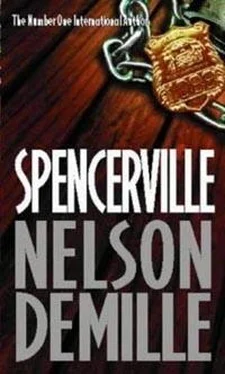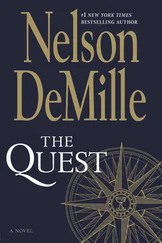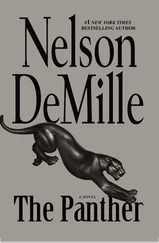"Yeah, maybe. But I don't need Chief Baxter for an enemy, and I don't need to start over again at my age."
"I wouldn't count on Baxter being chief much longer."
"Yeah? Ya think?"
"You read the transcript of the St. James meeting?"
He nodded.
"What do you think?"
"Well... the man ought to have better control over his dick." Aries smiled. "Hey, you know why men give their penises names? 'Cause they don't want a total stranger makin' ninety percent of their decisions." Aries laughed and slapped the counter. "Get it?"
"Sure do."
Aries got serious again and said, "But this other stuff they's sayin' he did... like fillin' up his private car here for free... hell, even if it was true, which it ain't, nobody got hurt. Now, the thing about him and those women, well, my wife says that makes him unfit to be police chief. I don't know, because I don't know if them women is lyin', or what. But I do know that those kinds of charges ain't doin' much for his home life. Hey, you know Mrs. Baxter?"
"We were schoolmates."
"Yeah? Well, that's a fine, fine woman. She don't have to hear that kind of crap from those sluts what got up in church, brazen as can be, and told all."
"Try to make the next meeting. My regards to Mrs. Aries. You should be with her." Keith picked up the bag and left.
From a pay phone around the side of the convenience store, he called Charlie Adair's house and got the answering machine. He said, "Charlie, my plans are postponed. I'll get back to you in a day or two. Sorry I can't make it tonight. Regards to Katherine. Meantime, if you call my home phone, assume it's tapped by Police Chief Baxter, who has this crazy idea that I'm interested in his wife. Stewart did a great job. He should be back before midnight. I'm still thinking about the job offer. Can I have a grow-light in my basement office? Tell the president I said hi. Speak to you."
* * *
At about nine o'clock that evening, Keith figured he'd been up for about thirty-six hours straight, and he got ready for bed. He opened the drawer of his nightstand and saw that the Glock was missing.
He thought a moment. The Porters knew where the key was, but they wouldn't help themselves to the pistol. He looked through his wardrobe cabinets and noticed now that things were slightly disturbed.
Obviously, Baxter had gotten into the house, which, for a policeman with at least one or two locksmiths on call, was not difficult.
Nothing seemed to be missing except the pistol, and there was nothing compromising in the house for him to be concerned about. He'd burned Annie's last letters to him, and her past letters of two decades had gone through one government paper shredder or another. He wasn't much of a saver, and he was glad now that he wasn't.
Letters aside, the Glock was gone, and Baxter had been through his things. That was reason enough to kill the man, and he would have except for his promise, and except for the fact that Baxter was about to lose his wife, his job, his friends, and his town. Death, as the expression went, was too good for him.
Keith found his old K-bar knife and put it on his nightstand. He turned off the lights and went to sleep.
* * *
He awoke at dawn, showered and dressed, and went downstairs. It was a cool, crisp Sunday morning, and when he went outside, he could see his breath. He walked to the cornfield and peeled back the husk on an ear. The color was about right, and so was the dry, paper-thin husk. Almost but not quite ready. Another week or two, weather permitting.
He walked around the farmyard, surveyed the buildings, the fences, the grounds. All in all, he'd done a good job, and all it took was some money, a lot of time, and backbreaking labor. He didn't know, really, why he'd done it, what the objective was, but he felt good about it. He knew he'd touched things, fixed things, that his father and uncle had touched and tinkered with, as had his grandfather.
There weren't many physical remains from his great-grandfather's day, or his great-great-grandfather, the original settler, but he was walking the same ground they walked, and in the early morning and in the evening, when the countryside was quiet in half-light, he could feel their presence.
* * *
He went to church. Not St. James, but St. John's in Spencerville. This was a different congregation, to be sure — better dressed, better cars. The big brick and stone church was the best building in Spencerville, aside from the courthouse. If the county had an establishment church, it was St. John's Lutheran, firmly connected to the early settlers and the present power structure. Even the Episcopalians dropped in now and then, especially if they were running for office or had a business in town.
Keith looked for the Baxters but didn't see them as he walked in. Even if he'd literally bumped into Mr. Baxter's ample body, there wouldn't be a problem; it was Sunday, this was a church, and Spencerville's God-fearing gentry wouldn't tolerate discord or disharmony in or around the Lord's house on the Lord's day.
Keith went inside. The church was large and held about eight hundred people. Keith scanned the backs of the congregation in the pews, but still he didn't see Mr. and Mrs. Baxter. If they were there, however, he'd see them coming out if he stood at the bottom of the steps after the service.
Keith took a seat on the left toward the rear, and the service began with Pastor Wilbur Schenk, Mrs. Baxter's confessor, officiating.
It wasn't until about halfway through the service that he realized that Annie was in the choir, sitting on the far right side of the altar, so he had a good view of her.
The choir rose to sing, and she looked at him as though she'd noticed him long ago and was impatient with him for not seeing her. They made eye contact for a moment, and he winked at her. She smiled as she began singing "Rock of Ages," then looked down at her hymnal, still smiling. She looked angelic, he thought, with her red choir robe and her eyes that sparkled in the candlelight. When the hymn was finished, she folded the hymnal and glanced at him again as she sat.
Before the service ended, Keith left and drove out of Spencerville.
He stopped at the Cowley farm and knocked on the door, but no one answered. It was unlocked, so he went in and called out for Billy Marlon, but the house seemed to be empty. He went into the kitchen and found a pencil and an envelope from a piece of junk mail and wrote: "Billy, leaving town for a while. See you next time. Stop the boozing. Go to the VA hospital in Toledo for a checkup. That's an order, soldier." He signed it, "Landry, Colonel, U.S. Army, Infantry." Keith didn't know how much good the note was going to do, but he felt some sort of need or obligation to write it. He put a hundred dollars on the kitchen table and left.
He considered going to the Porters' house, but he'd said his goodbyes and didn't want to alarm them with a change of plans; another case of the less they knew, the better for them. Cliff Baxter and his cohorts not only had to be reckoned with, but they were setting the agenda for a while.
Next call was Aunt Betty's. On the way, he stopped at a big indoor farm stand and bought jams, homemade candy, maple syrup, and other sugar products that would have put most people into sugar shock, but which Aunt Betty seemed to thrive on.
She was home, ready to go to Lilly and Fred's house for Sunday dinner, she informed him. She invited him in, but like most elderly people he knew, especially his German relatives, she didn't know how to handle a small change in her day. She said, "I have to be there in an hour."
Lilly and Fred lived about twenty minutes away, and Keith recalled with a smile Aunt Betty's theory of time relativity as it applied to herself and to other people. He said, "I'm only staying a minute. If you hurry, you can make it. Here, I brought you a few things." He put the bag on the dining room table, and she emptied it, item by item.
Читать дальше












